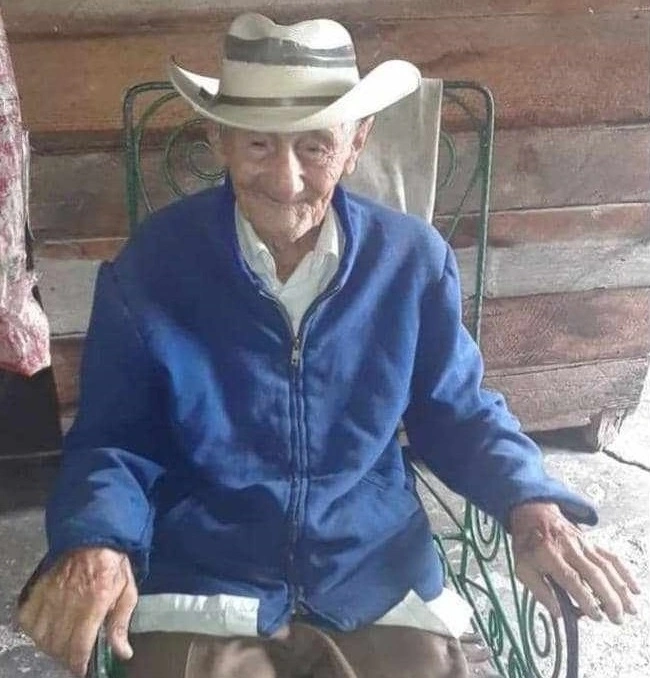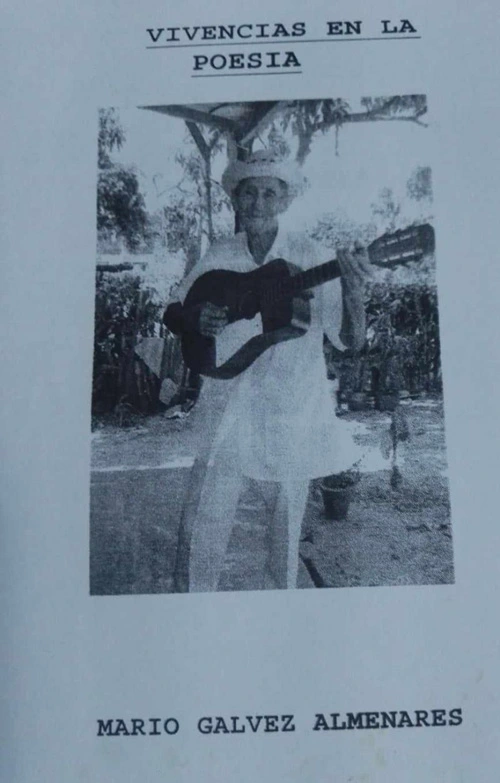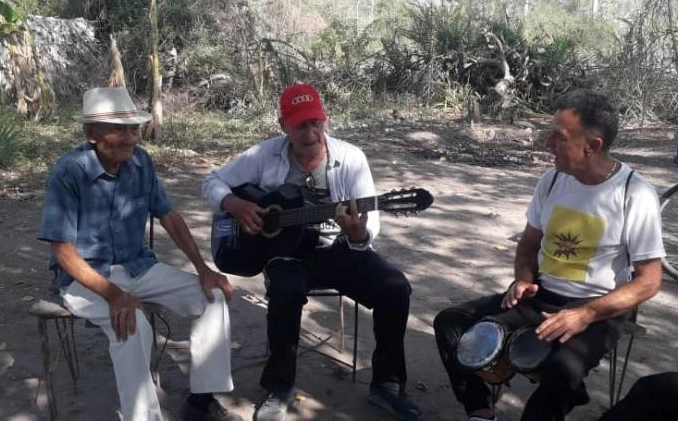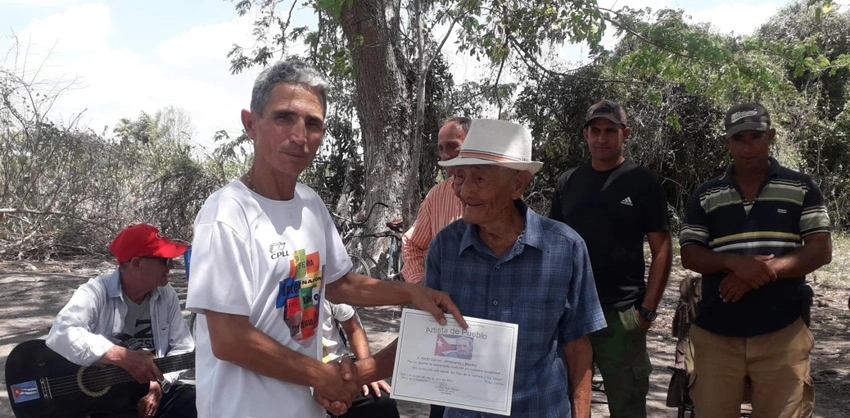Affection, admiration and respect are given by the residents of the town of Maceo, in the municipality of Cacocum, to the almost centenarian Mario Gálvez Almenares, declared ‘People’s Artist’ by the House of Culture of that locality, which this June 14 commemorates the 179th anniversary of the birth of Antonio Maceo.
A simple man, a man of the people, whose poetic and revolutionary history enhance his 98 years of age, Mayito, as everyone knows him in the community of Maceo, where he has lived since his adolescence and although his name, Mario, is a derivation of Mars, god of war, he has always distinguished himself for his charisma, kindness, energy and positive attitude towards life.
On a certain occasion, when making public his values and unquestionable personal merits, he only commented: “I learned it from my father”. Being the first of Mario and Luz Marina’s 11 children, since he was a child he accompanied his father in the production of charcoal and the cutting of reeds, in search of the family’s sustenance.
Mario Gálvez Almenares, artist of the people, poet, holguin

Since then he began to write rhymed verses, which he then shared with his friends in the neighborhood ‘Las Aralias’, in Maceo, where he has lived since he was 10 years old, when the family moved from El Yayal.
As Mayito was unable to study and only learned to write his name and a few words during the literacy campaign, he relied on other people to write his verses.

His artistic interests were such that, in the former ‘Coto colony’ of San Germán, today Urbano Noris, he joined a musical group; in 1948 he was the grandfather of the radio program ‘Tribuna guajira’, dedicated to the peasants and conducted by Reynerio Almaguer Paz (outstanding revolutionary from Holguín, member of the 26th of July Movement and leader of the peasant struggles, who was assassinated by the tyranny of Fulgencio Batista, on June 21, 1957). Upon receiving a letter of recommendation from the young Mayito, Reynerio read it live and put the microphone in his hands for him to make a poetic improvisation.
When the Revolution triumphed, Mario participated in a large congregation of peasants in Havana, all wearing yarey hats and the traditional machete at their waist. Six of them were invited to sing in a tribune, in the presence of the Commander in Chief Fidel, who proposed that the prize, in cash, be given to Mayito, for being, according to the leader of the Cuban Revolution, the one who best reflected the arbitrariness of Batista’s dictatorship.
At another time he was invited to a recording, in Batey Nuevo, Cacocum, of the Cuban television program ‘Palmas y cañas’, where he had the opportunity to share the stage with Celina González and Reutilio Domínguez, a respectable duet of peasant music widely followed by Cubans.
The cultural directorate in Maceo recently granted him the status of ‘Poet of the People’, in recognition of his extensive poetic trajectory shared with his people, as explained by Yunior Felipe Figueroa, director of the house of culture of that popular council.
Mario Gálvez Almenares, the people’s artist
Part of that poetic work was recorded, in 2008, in a booklet edited by journalist Edilberto González Gálvez, with the collaboration of Yolanda Fernández, Hilda Lina Quesada and the late colleague Ángel López Castillo, whose 21 poems and tenths reflect a wide thematic diversity. The book of poems includes the author’s biographical data.
Mayito, the revolutionary
This Cuban peasant minstrel, who was born in 1926, like Fidel Castro, went through many vicissitudes in the past, suffered abuses in times of dictatorships and permanent harassment when he began to collaborate clandestinely collecting and delivering medicines, along with other comrades, to troops of the Rebel Army operating in the territory.
A tireless worker in the sugar cane colonies of the Maceo and San Germán sugar mills since 1956, with the triumph of the Revolution he continued to be linked to the industry in his locality until the time of his retirement, after a long service record in the labor field, he was a member of the National Revolutionary Militias (MNR), first, and of the Territorial Troops Militias (MTT), later, without separating from his condition of troubadour, with the favor of the tradition of canturías and serenades, prevalent in his homeland.
This June 14, when the people of Maceo town visit the monuments erected to the Bronze Titan in the square and the central park to honor him, they will surely think of the occasions in which Mayito, their poet of always, shared his art in this and other historical dates, besides, as José Martí said: “There is nothing more beautiful than loving the elderly”.
I think it would be of your interest to know how the history of the community of Maceo began to be written since 1923, when that sugar mill, then named Arroyo Blanco S.A., made its first sugar production, after being transferred, in pieces, by railroad, from Camagüey and 20 years later a distillery (Yaguabo S.A.) of brandy and absolute alcohol was added to it.
Mario Gálvez Almenares, the people’s artist

With the triumph of the Revolution, the plant was nationalized, one of the last ones assembled in Cuba, completing the name of Antonio Maceo, which, in 1961 made its first harvest in the town and in 2005, as part of the sugar reconversion, it became the current agricultural and livestock company, with the same name.
There are plenty of reasons for Mario Gálvez Almenares to feel recognized for having honored poetically and with his life, the memory of Antonio Maceo and the undefeated Commander Fidel Castro Ruz.
- Winners of the project “The Memory that Saves” - 30 de June de 2025
- Yaniset Mariela leads popular actions in Felton - 31 de May de 2025
- John M. Kirk, a love for Cuba that withstands difficulties - 15 de May de 2025

